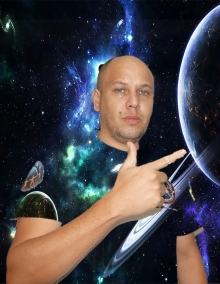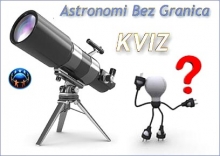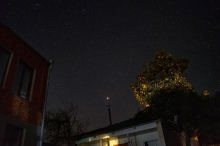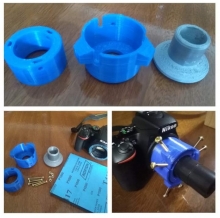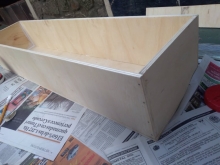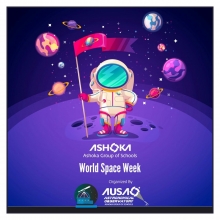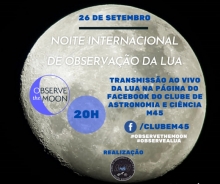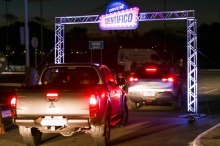Gernot Meiser is a photographer and designer who became an enthusiastic amateur astronomer while growing up in Saarlouis in western Germany. It was there, in 1972 at age 12, that Gernot first observed a partial solar eclipse and caught "eclipse fever", a passion that became a driving force in his life. He now travels the world to intercept the Moon's shadow as often as possible, documenting eclipses and leading important expeditions to remote locations in Siberia, Colombia, Bolivia, Africa and more. When not chasing eclipses, or not working in his audiovisual company, Gernot is usually found making night-time observations or sharing his passion for astronomy with others through lectures, conferences and workshops. At weekend seminars and teacher continuing education classes Gernot teaches safe solar observing and practical astronomy. He recently outfitted his 12-wheel Unimog expedition truck as a unique mobile observatory that provides new opportunities for popularizing astronomy by taking astronomy to the people and organizing astronomical events at any location.
Gernot founded the "Cassiopeia Saarlouis e.V." astronomy association in 2002 and still serves as its president. One of his goals in founding the association was to bring astronomy to the general public in a simple understanding way such as through public events, lectures and exhibitions during celestial events, and through the organization of astronomy-themed excursions. Through Cassiopeia Saarlouis, Gernot also promotes cultural exchange and understanding among nations using astronomy by participating in and organizing international astronomical meetings and events, embracing the spirit of "One People, One Sky."
Pascale Demy earned degrees in foreign languages and journalism in her native France before moving to Germany in 1989. Her first report on a total solar eclipse came during a trip to Bolivia in 1994, where she also documented how astronomy unites people of different countries and cultures. She has since teamed with Gernot Meiser on solar eclipse expeditions, often focusing on personal experiences and meetings with other people during the journey as much as the astronomical event itself, and on the organization, management and recording of astronomy-related activities.
Member Reports
Current Projects & Events
Telescopes to Tanzania
Telescopes to Tanzania (TtT) brings scarce educational resources to this developing country in east Africa. The emphasis now is on building the Centre for Science Education and Observatory in Usa River, Tanzania.
Learn MorePrograms
- Telescopes to Tanzania
- The BIG Project
- AstroArts
- Eclipse Glasses Giveaway
- Let's Count Wishes Together - Perseid Meteor Shower
- Watch Ring of Fire Eclipse 2020
- Global Astronomy Month 2020
- Mercury Transit 2019
- World Space Week
- El Gran Eclipse Suramericano
- Great South American Eclipse
- The Total Lunar Eclipse, January 20/21, 2019
- Mars: Red Planet Rising
- Saturn: See the Ringed Planet at its Best!
- A Journey Through Little Stars
- Eclipse Glasses Donation Program
- Under the Shadow
- Facebook LIVE Eclipse Series
- Eclipse 2017
- Eclipse STEM Education Program
- Faces of Astronomy
- The Sky in Your Hands
- The World At Night
- Resource Sharing Programs
Global Astronomy Month 2019
Global Astronomy Month (GAM), organized each April by Astronomers Without Borders, is the world's largest global celebration of astronomy. With a theme of The Moon, GAM 2019 brings new ideas and new opportunities, again bringing enthusiasts together worldwide to celebrate Astronomers Without Borders' motto One People, One Sky.
Learn MorePast Programs
- Global Astronomy Month 2019
- Global Astronomy Month 2018
- Global Astronomy Month 2017
- Global Astronomy Month 2016
- Global Astronomy Month 2015
- Super Moon Sighting
- Aristarchus Campaign - Mercury Transit 2016
- Eyes on the Sky
- Global Astronomy Month 2010
- Global Astronomy Month 2011
- Global Astronomy Month 2012
- Global Astronomy Month 2013
- Global Astronomy Month 2014
- Conjunction of Jupiter and Venus
- Transit of Venus
- Beauty Without Borders
- Reach for the Stars - Afghanistan
- Eclipse Glasses Donations for Africa
- Name Your Crater on Mars In "Astronomers Without Borders"
- Eros Parallax Project
- Seasons Without Borders
- Geminis 2010
- Eclipses Without Borders
- Meteors Without Borders
- The Day the Earth Smiled
- AWB Monthly Hangouts
Social Media Updates
All News |








